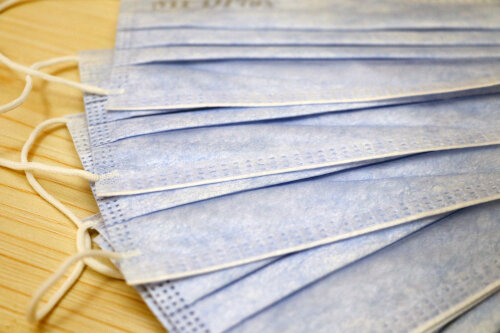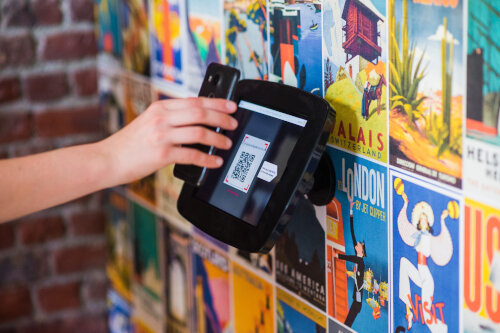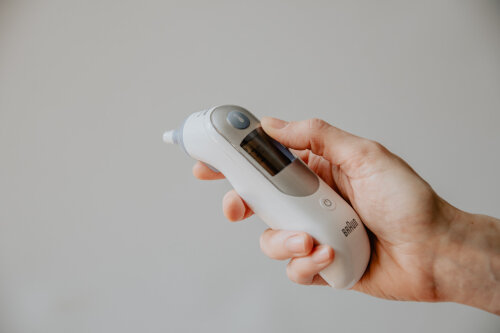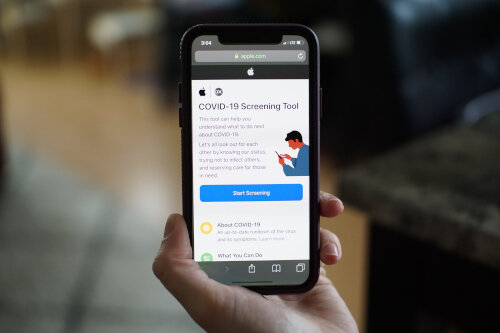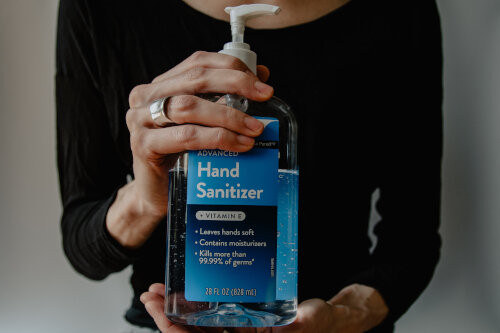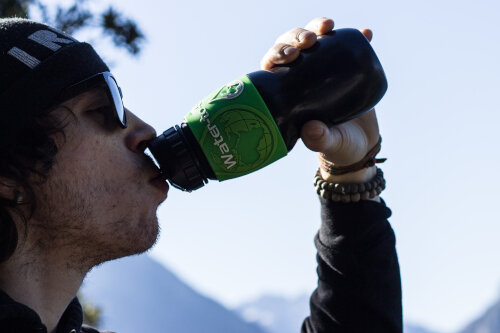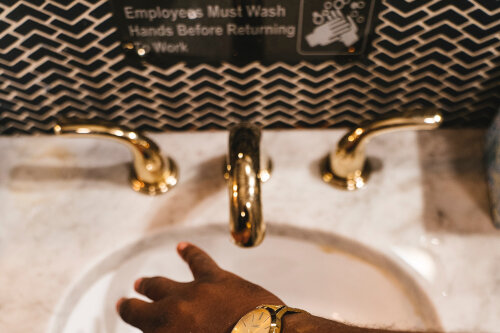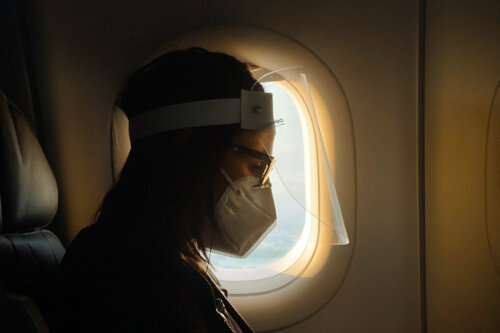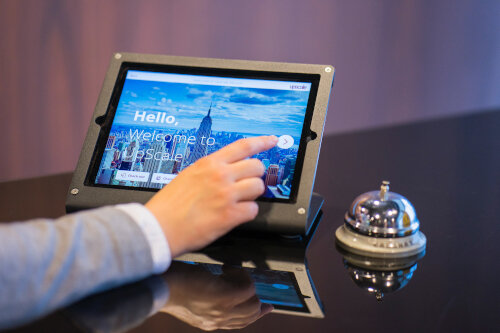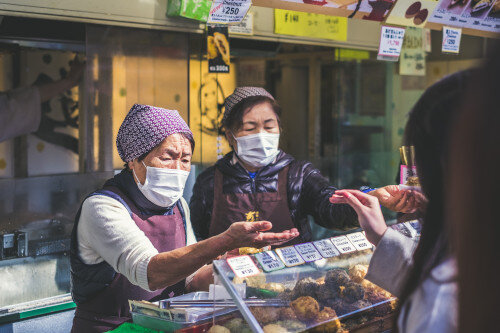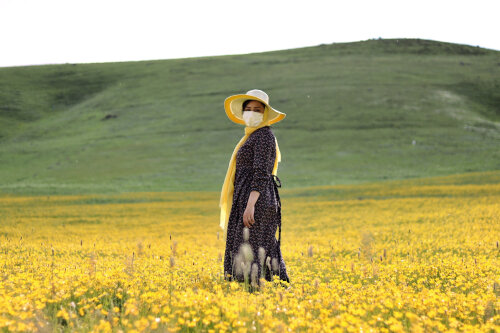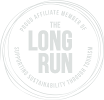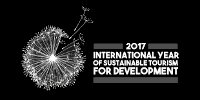Top Tips for Responsible Travel in the Covid Era: What Can We Expect in the ‘New Normal’?
/Every origin and every destination has different rules, and every accommodation, tour or transport provider will work in different ways specific to their location, business and the appropriate risk-based approach. As our destinations open up, we’ll give specific information to those enquiring for trips.
Here, we seek to highlight what you can expect in tourism in general until such a time that a Covid19 vaccination is rolled out and rules relaxed.
With world-wide lockdowns, while 100% global destinations had travel restrictions for the first time ever (UNWTO 2020), it’s been a tough and far from quiet time behind the scenes in tourism - and that, with staff likely furloughed, sick or on unpaid leave, and having not had income for more and more time.
First, agents and operators had to postpone, cancel and refund as appropriate the then-upcoming bookings in March, April, May…. and so it rolled on and on, for at least international tourism.
Then, with previous-bookings still being dealt with, tourism operators have had to implement and retrain for new Covid protocols, ready for re-opening, initially for local and domestic tourism: good practice for later easements for regional and international tourism.
Organisations have issued guidance, such as the World Travel and Tourism Council’s global SafeTravels Protocols, created in collaboration with global partners such as the International Air Transport Association (IATA), due to the need for a global coordinated and standardised approach to tourism recovery.
Protection of the health of citizens, including tourism workers and tourists, is the key priority in what is one of the most challenging times to ensure that people are and feel safe. However the sector of course cannot guarantee 100% immunity.
Protocols align with the World Health Organisation, Departments of Health and Centres for Disease Control and Prevention guidelines, and cover customer information, PPE, physical distancing, and sanitisation and hygiene practices, among others, for staff and customers.
We’re sure you’re only too keen to travel again, so to help you know what to expect, which will help tourism providers deliver the best service to you, here’s an overview of some of the protocols you might encounter. There’s more to consider now for the safe and gradual restoration of travel.
When you should not travel
If you:
are experiencing any coronavirus symptoms or have in the last 7 days.
are self-isolating as a result of coronavirus symptoms.
have been advised to self-isolate.
are sharing a household or support bubble with somebody who has experienced coronavirus symptoms in the last 14 days.
Planning
Find out about any requirements which might affect your travel:
Persons of higher risk: may be asked or recommended not to travel to or with certain establishments. They may also find it more difficult to get insurance cover for travel.
Insurance: Check yours - many policies include a ‘general exclusion’ against claims stemming from coronavirus. Some now do cover Covid issues, but different elements, for example: basic medical expenses if you catch the virus when away, repatriation and cancellation or travel operator closure, or if you or family has been diagnosed with Covid or had to self-isolate.
Most travel insurers have an exclusion for customers travelling against government advice, if it changes before you depart, or a lockdown restricts travel in your origin or destination.
Cover is also unlikely if you simply change your mind about travelling. You are likely better to wait for your travel provider(s) to cancel than to cancel yourself if you want to be covered.
Where travel operators have a legal obligation to refund customers, insurers expect them to honour that legal agreement. So if you do need to look for reimbursement, insurers will expect you to pursue refund routes first before making a claim for costs that can’t be refunded.
In Destinations
The main pre-requisite for the relaxation of travel rules under COVID-19 for resuming tourism activities is epidemiological evidence showing that the spread of the disease has significantly decreased and is likely to remain stable faced with an increased tourist population.
Every origin/destination route is different: You may not be able to travel from a higher risk to a lower risk area. Always check your origin and destination latest travel advice.
Origin Government Travel Advice: If you travel to countries that your country advises against visiting, your insurance policy could be completely invalidated.
Always check with your official country sources that you can travel to your desired destination and any rules regarding it, for example:
Destination Public Health & Travel Advice: Just because one country allows its citizens to travel to another, doesn’t mean the other country has to let in those citizens in. You will have to comply with coronavirus requirements in the country you travel to, such as providing your details to local authorities or:
Temperature Checks on Arrival: Such as by handheld infrared or ear gun thermometers.
Quarantine: Even if there’s not one in place when you book or depart, there’s no guarantee a destination won’t impose an enforced self-isolation period on your arrival, or indeed your home country on your return, even while you are away.
Be aware of transit rules too. Quarantines may apply if you have a transit stop and new passengers get on, or you or others get off and mix with other people not on your same journey. Though a quarantine may not necessarily apply if you travel through a non-exempt country in a private vehicle and no new people get into the vehicle or no-one in the vehicle gets out, mixes with others, and gets back in.
If there are suspected cases of coronavirus where you are, local lockdowns may occur, or you may be moved by certified transfer to quarantine facilities, take tests for coronavirus and, if positive in some cases, be hospitalised abroad. You should contact your airline or travel company and your insurance provider as soon as you can.
Follow the local authority advice. If you are required to quarantine or self-isolate, you should expect to do so in the country. You may need to stay longer. Plan ahead.
Covid Tests: Negative test proof is more than likely required.
The main ways that people are tested for Covid-19 are via polymerise chain reaction (PCR) tests to detect the presence of the virus, or antibody testing. In tourism
Some destinations or organisations may require a recent day’s negative PCR tests proof or certificate (‘fit to travel’) – or even multiple test results, taken days apart - for fast-track processing, else face a quarantine duration for up to 2 weeks.
Airports may test directly with passengers in a nonintrusive way (such as through full body infrared scanners, handheld infrared thermometers, and ear gun thermometers; to minimise pat-downs and face-to-face contact); at entry point to terminals, customs halls or baggage pick up areas, or prior to security check; and within a short timeframe and communicate results, namely fly/no-fly, to airlines.
Others may mandatory test you on arrival (possibly paid by you), after which you must quarantine for a defined period until test results are available and you are given the all-clear.
If you show signs of COVID-19 on arrival, or test results show positive, entry to a country may be denied or you may be asked to go into quarantine for up to 14 days.
Where declarations are required on arrivals, governments should consider electronic options instead of paper to minimise human to human contact; ideally implementing contactless processes.
Equally, with recommended use of global standards by governments for contact tracing, ideally electronically, you may be required to quarantine at any stage of your visit if destination authorities deem you have come into close contact with a COVID-19 positive individual, or if you become infected.
Transport availability: Even if legally you can travel and back without restriction, can you get to where you want to go? Commercial tourism operations have been severely impacted by the pandemic, and many services curtailed or paused while the world recovers. The full return to pre-Covid service operation levels may take some years. Never assume – check and preferably arrange before you go.
Before you go: check the destination situation, so that you know what to expect. For example, if you’re going for certain attractions, are they open and available? The experience expectation versus likely reality may alter your decision to travel.
Booking conditions: It’s always important you read and understand the booking conditions for any tourism arrangements you confirm, but possibly even more so in these Covid times.
Booking amendments and the conditions attached will be handled by your tourism operator based on your chosen trip and mandatory consumer law, where applicable.
You may want to check the flexibility of terms for your booking regarding postponements, cancellations, refunds or vouchers should your trip not be possible due to origin or destination Covid–related restrictions.
On the plus-side, many tourism operations have changed their booking conditions due to Covid to be more, if not fully, flexible.
Responsible Tourism Starts With You
As at home, be aware that health and safety is paramount. Regardless where you are, you should behave in a way to limit any potential transmission of infection, and continue and expect:
Hands Hygiene: Wash frequently with soap and water for at least 20 seconds - the duration of singing ‘happy birthday’ twice – or if not possible use alcohol-based hand sanitiser. Always wash your hands upon returning inside.
You should also avoid touching things in public spaces as much as possible, avoid touching your face, which can transfer the virus. If you cough or sneeze, cover your mouth and nose with a tissue or flexed elbow.
Spatial/Social/Physical distance: means keeping a safe space between yourself and other people who are not from your household, maintaining distance of 6 foot / 2m / 2 arms’ length / 3 steps. Avoid touching other people.
Where quarantine or isolation restricts the movement of people within a certain area or zone, social distancing places no such locational constraints, rather it is a behavioural practice. There is evidence that the risk of transmission increases by 2-10 times at 1m compared to 2m.
Wear A Face Covering: In public places, shops, transport. Masks are proven to seriously limit the spread of infection and are legally required in some places such as on transport: Always travel with a mask.
Water: Travel with your own refillable water bottle – grab yourself a discount off our partner’s Water-to-Go bottles, which are a water filtration systems in a bottle that filter in excess of 99.9% of all microbiological contaminants including viruses, bacteria, chemicals and heavy metals from any non-salt water source, including bad smells, tastes, chlorine, fluoride, and even typhus, cholera and hepatitis.
Tourism Operations
Standard Operating Procedures (SOPs) are sets of step-by-step instructions to help workers carry out operations. Under COVID everywhere, these have all had to be reviewed and revised.
All tourism operations (transport and tour providers, accommodations) can be expected to have gained applicable reopening license if required by local government including to have developed a COVID-19 prevention plan including an action/checklist for infection prevention, a special cleaning and disinfection plan, required staffing levels available to restart operations and implemented protocols and guidelines for staff safety and health, including health checks for hotel staff if required by local legislation, aligned with all local travel and supply chain partners (transport, catering, laundry, excursions, maintenance…) having likeminded protocols in place.
Customer processes will include enhanced guest information, potentially guest health / temperature checks if required by legislation, limited social interaction and queuing at reception, and recommended use of face masks.
Staff
Whilst you may be anxious about your first travel post-Covid, appreciate that everything will be done to keep and make you feel safe and secure, so please follow advice.
Staff during lockdowns have not only had the challenging time everyone has, but they are also faced with a new challenging working environment. They may have had to quarantine to return to jobs in accommodations, have their temperature checked before every shift, and quite likely have trained in new skills and retrained in new SOPs and protocols.
Re/training
Core to hospitality is a warm welcome, and we take a lot of cues from expression. Spatial distancing and wearing PPE can feel like a barrier to this, such as face coverings masking smiles. Many staff have retrained in their roles wearing PPE, to understand how much more exaggerated facial expression and spoken words are important to convey communication, and how much space is required between hosts and guests for health and comfort.
They may also have undertaken greater medical training to be on the watch for symptoms and know best how to respond to medical emergencies, including access to medical professionals.
All staff can be expected to be wearing PPE, including masks and gloves.
Flights & Transport
Specific requirements will depend on your origin, destination, technical features of transport and risk control of operators. In general you can expect:
Reduced passenger touchpoints: such selfcheck kiosks and bag drop, home-printed bag tags, off-airport processing, and greater use of e-gates.
Check in: Online where possible, to minimise person to person contact.
Also, check in baggage preferred (though not lithium batteries – eg. laptops, or powerbanks - valuable or essential items - cash, credit cards, keys, medicines - or other prohibited items) as minimising hand baggage can speed up boarding and disembarking and thus any the risk of transmission.In transport hubs: arrive alone or with travel partners. Non-passengers should only enter for a passenger requiring assistance, such as a disabled person or an unaccompanied child.
Follow instructions, which may include where to sit, how to queue or requests to move to less busy areas – from staff, on screens, barriers or floor markings.
Avoid touching surfaces, and wash your hands after using self-service check-in, luggage trollies, food trays etc.
Remain seated as much as possible: Avoid walking around and mixing with people that you do not normally meet.
Where possible, pay by contactless card.
Be aware there is likely to be a reduced food and drink service.
Make staff aware if you become ill.
On arrival, you’ll need to comply with any border and immigration requirements including new Covid19 protocols.
Expect to have to wear a face covering yourself, which you may have to remove it if asked to do so by police, border controls or security.
Take your own face covering for use throughout your journey and spare face coverings for longer journeys - take plastic bags to store used face coverings and dispose of them properly – do not use recycling bins or drop them as litter.
Some international destinations may require different face coverings - check before you travel.
Be aware that wearing a face covering may make it harder for people who rely on lip reading, facial expressions and clear sound to understand.
Accommodations
Understand you may not be welcomed in a preferred tactile customary way eg. shaking hands.
Guest health checks may also be offered if appropriate or required by local legislation.
Hand sanitisers and PPE will likely be made available.
Seating in communal areas may be reconfigured to allow for social distancing.
Integrated technologies may enable automation such as contactless payment where possible.
Rooms or will be disinfected and ‘rested’ for up to 72 hours between guests.
Expect laundry to have used authorised detergent and high-heat washer and dryer settings.
Limits on the number of guests permitted in facilities may be imposed, whether total visitors in a property, or for example inside an elevator.
Waste disposal and cleaning of machines used by guests is expected to be more frequent.
You may spot cleanliness and disinfection innovations, such as electrostatic spraying technology, UVC light and EPA based air filtration.
Food & Drinks
Expect enhanced protocols and guidelines for food safety in restaurants, cafes and kiosks relating to supply chain control, food handling and preparation, hygiene, digitization, queue management and deep cleaning.
Guest handling of food at buffets and sharing platters are likely to be off the menu.
Physical distancing through table spacing and guest seating will be maximised, and what placed on guest tables minimised, with mono-packaged items available if feasible (not great for sustainability).
Enhancing cleaning and disinfecting tables to take place immediately after guest has left.
Longer opening hours may apply to reduce the number of guests served at any given time and facilitate the implementation of the new measures.
Tours and attractions
Tour leaders will not only be expected to wear PPE and use (and make available) hand-sanitizers, but also know where public toilets/hand-washing facilities/ sanitation stations are available.
Many tour groups have reduced maximum numbers to facilitate social distancing while still being able to enjoy the social camaraderie of travelling in a group.
Tours will likely be carefully scheduled to maximise spatial distancing opportunities including advanced tickets and timed entries, and allocated seating plans with no rotation.
At attractions, capacity can be managed and/or reduced to allow for appropriate physical distancing, especially for areas of usual queues.
Specifically for attraction rides, recommended use of face masks, ensuring they do not present a loose-article hazard, that safety, gates are locked and secured.
For water park operations, hands-on, interactive features within play structures may be closed if they are not covered in treated pool water.
Picnic-lunches may be recommended over stops at road-side eateries.
Deep cleaning of vehicles with approved disinfecting products can be expected, and enhanced cleaning of high frequency touch points such as handrails, door handles, air conditioning filters, overhead lockers and headsets.
This also applies to equipment eg. saddles for horse-riding. For operators, this may not just be a logistical or time challenge, for example finding sanitisers that won’t destroy leather more quickly. Some cars may have a transparent partition between the driver and guests.
In Summary
This may all be a lot to take in, but tourism operators have worked really hard since the pandemic started to create and implement a lot of these new protocols to keep you safe and secure.
Wherever you go, clear, consistent and up-to-date communication on new health & hygiene protocols should be available, with guidelines available ahead of your trip and where applicable in person upon commencement.
Most importantly remember:
Check your home country advice.
Check your destination country advice.
Check your insurance cover for Covid-related issues.
Check with your tourism providers for travel and destination-specific guidance.
In their inimitable hospitality style operators will make it as easy for you as possible - they want you to travel as much as you want to get back to it - we’re all aiming for the best experience for you!
Any questions or additions? Please let us know.
For further information you can also refer to: The World Health Organisation Coronavirus disease COVID-19 advice for the public
